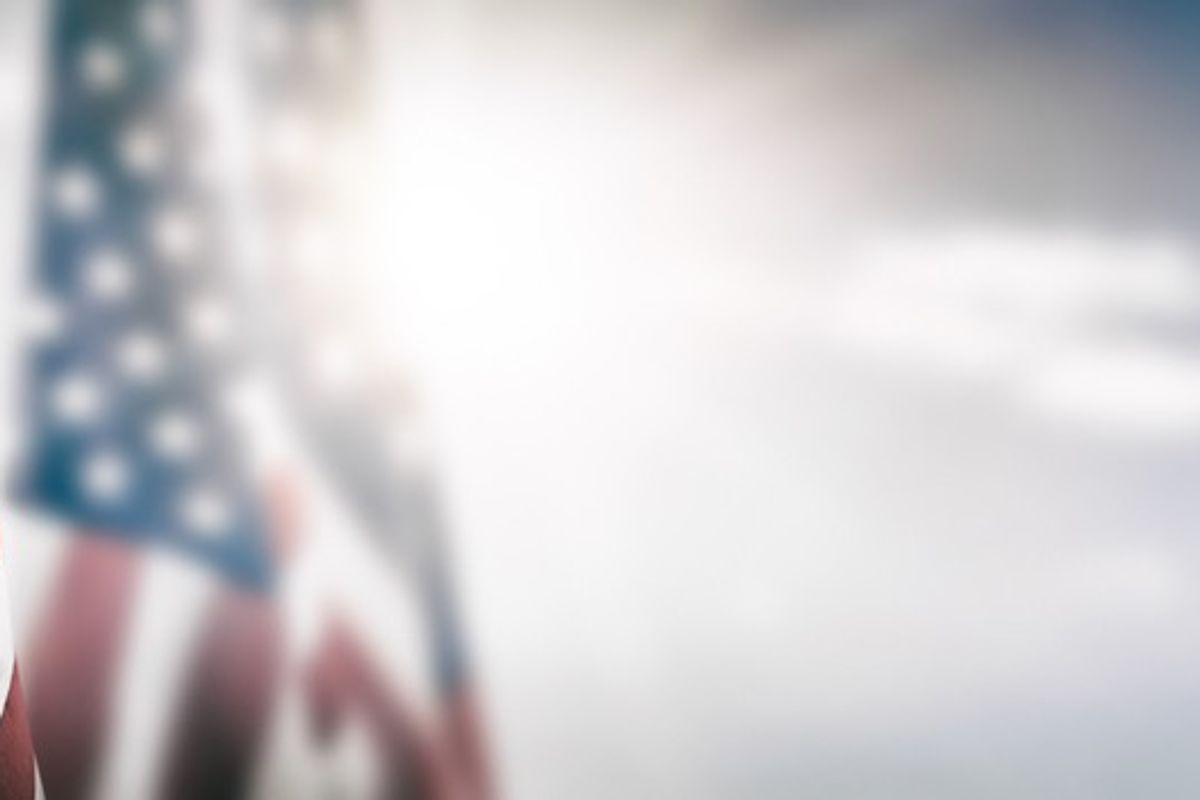As Veterans Day approaches, I find myself thinking about the veterans in my family—three generations. There is my 95-year-old father-in-law, who did his World War II service as an enlisted man in the Army in North Africa, Italy, and France. Next is my husband, whose nearly 40-year Air Force career started during the Vietnam War, continued on through the First Gulf War, and wars in the Balkans, Iraq, and Afghanistan. He has since retired, but the War on Terror continues. And there is our daughter, who began her Air Force career during the First Gulf War. She served five years on active duty and another 15 as a reservist.
A few weeks after 9/11, she was recalled to active duty. At the time, our granddaughter was only two years old.
Our daughter was fortunate in that she wasn't sent off to Afghanistan but rather to a position at Air Force Headquarters in the Pentagon. The job consisted of rotating 12-hour shifts. She could sleep in her own bed, but her schedule was not at all in-sync with those of her husband and baby. We watched as her husband did what military spouses have been doing since time immemorial: He stepped up. He stepped up and became Daddy, Mommy, chief cook, bottle washer, bather of baby, taker to day care, picker-upper from day care, nurse to sick baby, and cleaner of clothes, dishes, and house. In many ways, he was like a single parent. Our daughter was just not available to share the burden.
I remember praising my son-in-law and telling him that I knew it wasn't easy. He replied that he didn't mind. Sure, he was tired and he wasn't getting much downtime for himself, but this was his way of serving, his way of doing his part for the nation's cause.
His is an attitude that I've seen in many military spouses. They may not be wearing uniforms, but they and their children are also serving the nation, and it is never easy. Sometimes it is painful and downright scary to send the person they love off to unknown dangers in a war zone. But they understand that their military spouse or dad or mom has a calling to protect the nation. They understand that when they support their military member, they are stepping up and doing their own part in protecting the nation.
Since these military family members don't wear uniforms, they rarely get recognized for the sacrifices they make. Strangers don't pat them on the back and say, "Thank you for your service." That's okay. They aren't doing it for recognition. They are doing it, because they love their soldier, sailor, airman, or marine and because they love their country.
So this Veterans Day, as you honor those who have served, please also give a little thought to, and perhaps say a little prayer for, those families who have stood side-by-side with the veterans at far-flung posts around the world and sometimes stayed behind praying and keeping the home fires burning while the veterans went into harm's way.
Our daughter was deactivated after about ten months and went back to her civilian job and her usual reserve schedule. Her family’s daily life returned to normal.
But many of our military families have not been as fortunate. These last 14 years have created a great strain on them and their loved ones. Many children are spending the larger part of their growing up years with their military parents absent. Many families have been through a series of separations and reconnections.
The nation is very different today than it was when my husband first entered the Air Force during the Vietnam Era. In those days, returning veterans were treated with approbation and scorn. Today’s returning vets are more likely to be greeted with a pat on the back and a “thank you for your service.”
Seeing the reunion videos on YouTube or Facebook can touch our hearts and make us feel good, but what we are not seeing is the struggles that the family may face trying to reconnect. The separation was stressful; perhaps the military member has come back home with an injury – visible or invisible. The children have grown and changed. The stay-behind parent has been handling everything. The military member returns and everyone expects to slip back into how things were before the deployment. But that’s not always possible. The family has to figure out how to come together again.
We don’t know what the future holds for today’s military and their families. We understand that they are exhausted after 14 years of war. We don’t completely comprehend what the long-term impact of all this will be on them and their family members.
So, this Veterans Day, as we honor our military veterans, we should commit ourselves to do more than think of them just this one day. We should be ready to honor them and show our thanks for their and their families’ service and sacrifice by making sure that the jobs, counseling, healthcare, and other services they need to reintegrate into civilian life are robust and available to them whenever and wherever they need them.









